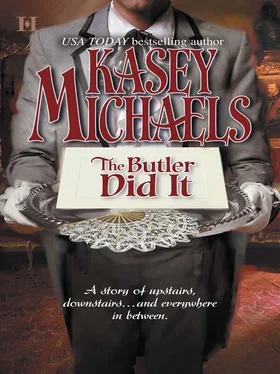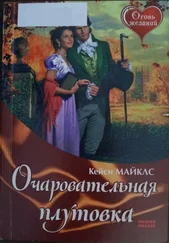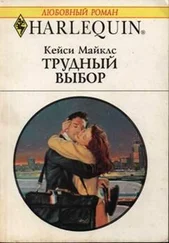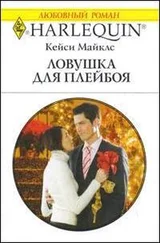His employer leaned his elbows on his knees, and grinned. “Wise, eh? How do you know?”
Anderson hadn’t kept his position for fifteen years without learning how to please his employer. “I…I think they wore pointy hats, sir.”
Hatcher nodded eagerly. “Yes, they would, wouldn’t they? With stars on them, I’ll wager. So where are they now? These alchemists?”
“Unless there are a few more recent adherents to the tenets, I think it would be safe to say that they’re all quite dead, sir. Although there are those who say that, before succumbing to their mortal ills, they may have succeeded in discovering a way to turn base metals into gold.”
“Ah-ha!” Thatcher said, thrusting his fist into the air. “And they probably wrote it all down somewheres, how they did it. I mean, you’d write it down, wouldn’t you? How to do it?”
All right, so now Anderson was interested. “Yes, sir. I’d write it all down. Why do you ask?”
“None of your business, boy, none of your bloody business,” Thatcher bit out, and quit the room.
AS WAS CUSTOMARY in all the great houses, the females gathered in the drawing room after dinner, taking their tea there while the men remained in the dining room, tossing back brandy, gnawing fruit and blowing a cloud with their cheroots.
“There’s something havey cavey about Sir Edgar,” Fanny pronounced, sipping brandy—not a lady’s drink, but Fanny had her own definition of what a lady does, which had a lot to do with what that lady wants.
As Daphne had picked up her embroidery and was busy counting stitches, and Emma was pointedly ignoring her grandmother, it was left to Olive Norbert to ask, “Like what? Seems all right to me.”
Fanny rolled her eyes. “And, if I but valued your opinion, Mrs. Norbert, that would weigh heavily with me, I assure you. The man is too clever. Too clever by half.”
“You’re just saying that because you prefer your men stupid,” Emma said before she realized that, yes, her mouth could move before her brain was fully awake to what it was saying.
“Not true, my dear. I can’t abide Cliff. Couldn’t stand his father, or his father before him. And if you want to find three more stupid men, I suggest you take a lantern and have Mrs. Timon pack you a lunch.”
“My Cliff is not stupid, Mother Clifford,” Daphne said, putting down her embroidery. “His last tutor told me he’s quite inventive.”
Emma refused to meet her grandmother’s eyes, but just waited for that woman’s comment.
“Inventive, is it? Of course. That would explain how the idiot child was sent down last term for throwing his lantern at a mouse he saw peeking at him from a corner of the room. I say the boy’s just lucky his eyebrows grew back.”
“More tea, anyone?” Emma asked, trying not to look at Mrs. Norbert.
“It was an accident, and I would take it as a kindness, Mother Clifford, if you were not to speak of Cliff any more this evening,” Daphne said, picking up her embroidery once again, as counting stitches was less stressing than listening to her youngest child’s less-laudable exploits trotted past her.
Olive Norbert shoved another pastry into her already fairly full mouth, and said, “You know, I’m ponderin’ this, what you said. Sir Edgar says he’s never come to London before, but I asked him to pick up some number-three lacing for me at m’old shop, and he didn’t even ask the way. I didn’t think on that until now. How’d he do that?”
“A guide book? A map? Inquiring of someone he passed on the street?” Emma suggested, wishing the woman would keep her questions to herself, and praying that her grandmother would not think it wonderful to share whatever she had discovered about the man on her visit to Sir Edgar’s bedchamber that afternoon.
Fanny tapped one slightly gnarled finger against her chin. “Possible. Possible. Oh, and he is not acquainted with the marquis. I already asked him that, and he said he did same as us, answering the newspaper advertisement.” She smiled sweetly at Olive. “Someone read it to you, Mrs. Norbert?”
“I can read for myself,” Mrs. Norbert said, raising two of her three chins in defiance. “I can also pick you up and toss you over my shoulder, old lady.”
Emma stood up, putting herself between her grandmother and the irate seamstress. “Please, please, Mrs. Norbert, forgive my grandmother. She’s, um, elderly?”
“She’s mean as a snake, that’s what,” Mrs. Norbert said, sitting back in her chair and crossing her plump arms over her chest. “I know you don’t want me here, think you’re all so hoity-toity and better’n me. And I don’t care. Long as I’m eating good.”
“And Lord knows you’re doing plenty of—” Fanny began, but Emma whirled on her and glared. “Sorry,” she said quietly. “All right, all right, I’ll put the gloves back on. It’s this demned fog, that’s what it is. Look at it, creeping in under the windowsills. We’re all just stuck in here, cheek by jowl, and I’m tired of it. I have plans.”
Hearing her grandmother mention that she had plans set Emma’s teeth on edge. This couldn’t be good….
“THIS FOG COULDN’T be worse,” Morgan Drummond said, peering out the side window of his coach, trying to see past the minuscule yellow glow cast by the few gas lamps lining the street, to the buildings beyond. “I think we’re close now, but I can’t be sure. Wycliff? For God’s sake, man, stop clutching the door as if a great fog monster was going to yank it open at any moment, pull you outside and bite off your head. I’ve given up my hopes of that a good hour ago. Ah—we’re stopping.”
Morgan drew the edges of his cloak over his knees and tied the laces at his throat, then reached for his curly-brimmed beaver on the seat beside him. “Heave to, Wycliff, we’ve arrived.”
“How…how can you be sure, my lord? I don’t see anything out there.”
“True, neither do I. But as the nothing out there is highly preferable to the something in here, I’m willing to hazard the gamble.” So saying, he opened the door on his side of the coach, kicked down the steps and then ignored them to hop onto the cobbles, nearly coming to grief as the slippery stones sent him momentarily off balance.
“We’re here, your lordship,” the coachman called down to him unnecessarily, even as servants riding in the second coach (normally following far behind the master’s coach, but tonight, because of the fog, riding directly on its heels), bustled forward to assist the marquis. “We’ll just drive around to the mews and unload the baggage and see to the horses.”
“Do that, Briggs, and thank you. Make sure Sampson is taken care of, as well? Then take yourself to the kitchen, for something to eat.”
“Yes, my lord,” Briggs assured him, as assorted Westham servants and grooms got on about their business.
Wycliff pushed two of them out of the way in his haste to be the one who ushered Morgan up the rounded set of steps, to the double front doors, lit on either side by dying flambeaux.
“This way, my lord. Watch your step, my lord. I’ll bang the knocker for you, my lord.”
“Control yourself, Wycliff, before you do yourself an injury. I’m not in my dotage yet, I can knock at my own door,” Morgan said, lifting the knocker.
Then he hesitated. “Strange. The knocker shouldn’t be on the door, as I’m not in residence.”
“Shoddiness, my lord,” Wycliff said quickly. “It’s the only answer. The master’s gone and slack seeps in everywhere. I’ll be sure to have a remonstrative word with the staff.”
“Do, Wycliff, and I’ll have a remonstrative word or two with you, understand? Thornley is my family’s treasure, and is not to be read a lecture by a skinny shanks like you,” Morgan said, giving the knocker three sharp hits against its brass base.
Читать дальше











